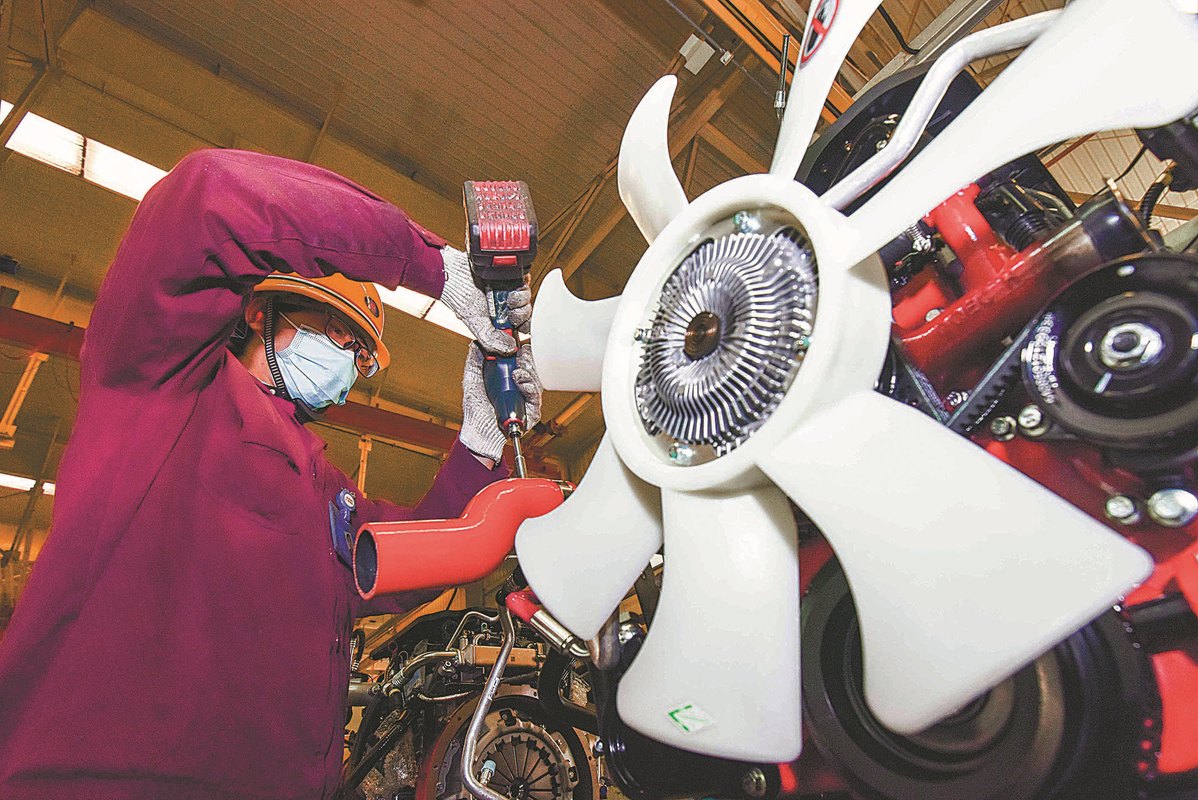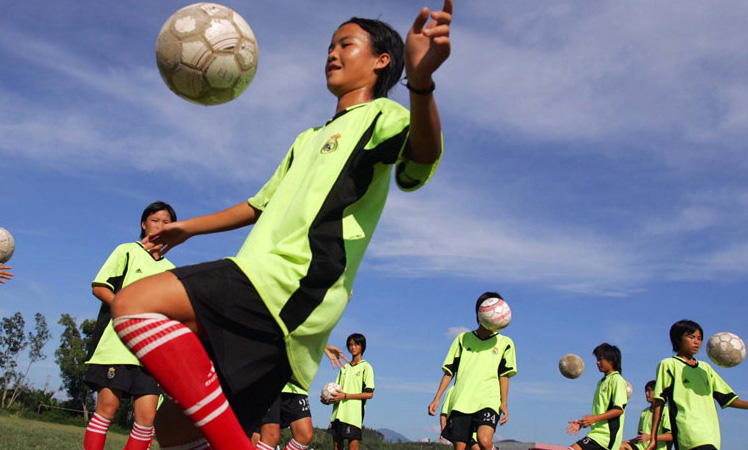Solid steps stressed for steady growth

An employee works at a vehicle production facility in Qingzhou, Shandong province. [Photo by Wang Jilin/For China Daily]
Tax refunds, cuts among priorities to maintain stable economic performance
All key tasks laid out in the Government Work Report must be effectively implemented with a clear division of responsibilities and solid steps to facilitate stable economic performance while overcoming difficulties, according to a decision made at an executive meeting of the State Council chaired by Premier Li Keqiang on Monday.
Noting the new downward pressure on economic activity and rising difficulties and challenges, the meeting stressed the need to coordinate COVID-19 response and economic and social development, intensify cross-cyclical adjustments, place steady growth in a more prominent position and deepen reform and opening-up, to accomplish the economic and social development goals and tasks for the year.
"The Government Work Report has been adopted by the National People's Congress. It is a legally binding document that must be well implemented," Li said. "We need to closely watch the latest developments at home and abroad. Right now downward pressure on the domestic economy remains substantial, with rising uncertainty in the international landscape."
The meeting underlined the importance of closely following the changing geopolitical dynamics, major economies' macro policy adjustments, and the trajectories of commodity markets and their implications for China.
Responsive measures need to be refined accordingly to keep major indicators such as economic growth, consumer prices and employment stable and within an appropriate range.
Tax refunds and cuts are the central measures this year to maintain stable macro economic performance. A detailed implementation plan for value-added tax credit refunds will be formulated and introduced as quickly as possible.
Specific plans to extend, expand and intensify other tax and fee cut policies that support micro, small and medium-sized enterprises and self-employed households will be swiftly explored.
Transfer payments to localities for tax and fee cuts must be directly channeled to prefecture- and county-level governments without delay, to provide primary-level governments with the fiscal resources to assist local businesses and residents.
Localities should act in light of the actual situation and adopt policies such as reducing or waiving rents and lowering energy fees to help market entities.
Financial institutions will be encouraged to roll out specific measures to make substantive progress in making financing truly accessible for micro, small and medium-sized enterprises and in cutting overall financing costs.
Meanwhile, proactive efforts will be made to boost domestic demand, unlock consumption potential and increase effective investment. A stable supply of electricity and coal will be ensured.
"We must prioritize key measures and see that they are delivered on the ground. Tax refunds are a most critical measure. When money is channeled in a more targeted way, enterprises can benefit directly and promptly," Li said.
Policy incentives such as additional tax deductions for research and development expenses and tax breaks for basic research will be implemented to promote scientific and technological innovation by enterprises.
New developments in keeping foreign trade and investment stable will be closely watched. Policies must be delivered to help tackle the difficulties facing foreign trade and foreign-invested enterprises.
Photos
 Enchanted winter scenery of Barkol, NW China's Xinjiang in early spring
Enchanted winter scenery of Barkol, NW China's Xinjiang in early spring Traditional tie-dye products of Buyi ethnic group in Guizhou popular among tourists
Traditional tie-dye products of Buyi ethnic group in Guizhou popular among tourists Girls from mountainous areas in Hainan pursue football dreams
Girls from mountainous areas in Hainan pursue football dreams Chinese artist forms elaborate images using whisked tea foam in revival of Song Dynasty’s cultural splendor
Chinese artist forms elaborate images using whisked tea foam in revival of Song Dynasty’s cultural splendor
Related Stories
Copyright © 2022 People's Daily Online. All Rights Reserved.






